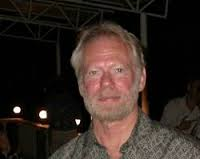
Practical information
Themes and regions
Related centers and programs
A closed seminar organized by the Russia/NIS Centre, with Robert LEGVOLD, Marshall D. Shulman Professor Emeritus in the Department of Political Science at Columbia University

Russia-US relations have seen many ups and downs during the post-Soviet period. Since Russia’s annexation of Crimea, some observers even argue that the Cold War is back. Although both countries continue their dialog, the two seem to be talking past each other. The United States has been too quick to rank Russia as only a regional power. Russia, on the other hand, seems to count on the decline of US global influence and American-style democracy.
Analyzing Russia-US relations is particularly opportune in the context of the upcoming elections in United States. Where is this relationship headed? How could it impact key international issues? And what implications will it have for outside partners, and Europe in particular?
Chair: Tatiana KASTOUEVA-JEAN, Head, Russia/NIs Centre, Ifri
Related Subjects
Other events

From Ambition to Action: Exploring Technological Partnerships with India
The 16th EU-India Summit, held on January 27th in New Delhi with European leaders António Costa, Ursula von der Leyen, and Prime Minister Narendra Modi, marks a significant milestone in deepening EU-India relations. At the same time, official bilateral visits from EU member states are on the rise, including that of the French President, who visited India in February to participate in the Artificial Intelligence Summit. As India asserts its technological ambitions and seeks to reduce its dependence on China, Europe is stepping up its efforts to diversify its strategic partnerships.

The Enlargement of the European Union: A Strategic Choice? France, the Western Balkans and the EU in an Uncertain Geopolitical Context
Russia’s war against Ukraine has brought the enlargement of the European Union back to the centre of European strategic debates. In this context, the Western Balkans have regained heightened visibility in discussions on the continent’s security, at a time when the international environment is marked by a growing number of destabilising factors.






